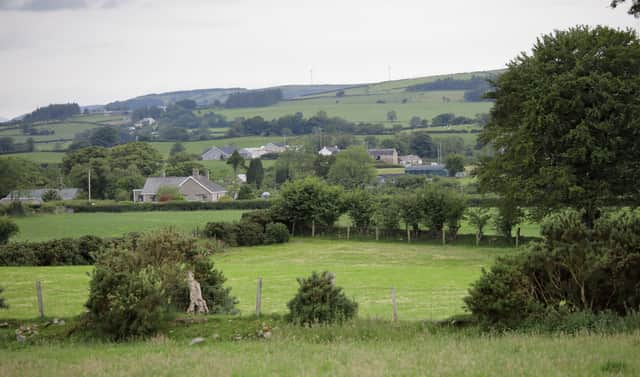Climate change update


The Ulster Farmers’ Union (UFU) has been consistent in its messaging throughout, stating that we want to see fair and credible legislation for NI based on science and expert advice.
Despite all the evidence presented to them, some politicians are failing to understand the significant consequences for the environment and the economy if they get this wrong.
What happened this week?
Advertisement
Advertisement
The Executive’s Climate Change Bill (No. 2) finished the penultimate stage this week at the NI Assembly. It was the final opportunity to amend the bill and in particular, the net zero by 2050 target which had been agreed at the previous stage. This target had caused considerable anxiety amongst farmers and the agri-food sector as the UK Climate Change Committee had advised politicians that it was not achievable, was ‘morally wrong’ and that the only way to achieve it was through significant livestock cuts with damaging consequences for the whole economy and rural society.
Around 100 amendments were submitted to the bills office and 70 of these were accepted to be debated. Many of these were technical amendments, required to ‘tidy up’ the bill, to make it read better and to make it more operatable, and were proposed by the DAERA Minister.
There were also two key amendments on methane which had been proposed to try and prevent the significant damage that the net zero by 2050 target would impose on the agriculture sector.
These were:
i. The DAERA Minister proposed a key amendment to align reductions in methane to the advice of the Climate Change Committee.
Advertisement
Advertisement
ii. Sinn Féin put forward an amendment on biogenic methane and its link to global temperatures.
The Ulster Farmers’ Union (UFU) supported both amendments, and discussion and advice taken indicated that these were complementary of each other. However, just hours before the debate was due to start, the Speaker ruled that these were mutually exclusive i.e. if one was supported the other would not be put to the vote.
During the debate, it was clear that there was general support for agriculture and rural communities from the majority of parties including the DUP, SDLP, Sinn Fein, UUP and TUV and the need to somewhat protect the sector from the damaging net zero by 2050 target. When the first amendment was put to the vote it was passed despite objections from the Greens and the Alliance Party and therefore, the Sinn Fein amendment automatically fell as it was deemed mutually exclusive.
What does this mean?
The Executive’s Climate Change Bill now has a separate target for methane which is not required to be more than 46 percent lower than the 1990 baseline. Effectively, this puts the bill back in line with the Climate Change Committee advice and is consistent with the advice by the International Panel on Climate Change (IPCC).
Advertisement
Advertisement
The separate target for methane will protect and preserve the overall net zero target, while ensuring that the levels of methane reductions required are consistent with the advice and guidance of the experts. In doing so, it will help to provide some degree of protection for the agriculture sector without limiting the overall climate ambition.
This is still a very ambitious target and despite what some might claim, farmers have not been let off the hook by any means. Changes will be required of agriculture to meet this target, but supported by science and expert advice, this is more achievable.
What next?
The Executive’s Climate Change Bill will now move to the ‘final stage’ next week. A final debate on the bill will take place on 8 March however, MLAs cannot make amendments at this stage and will vote on whether or not to pass the bill. If passed, the bill will become law and government departments will have to align policies to ensure they are compatible and will start to deliver towards the targets.
What about the Private Members Bill?
Clare Bailey’s Private Member’s Bill with the net zero by 2045 target, is scheduled to start the ‘consideration stage’ also on 8 March. This is concerning as it still presents a significant threat to the industry and must be stopped. It would seem senseless to allow the consideration stage of this bill to progress when it is a similar piece of legislation and because the NI Assembly is struggling to find time in its schedule to deal with business before the end of the current mandate (28 March).
Advertisement
Advertisement
The UFU will continue to lobby to ensure that this bill does not become law and to urge MLAs to follow the science and expert advice that they have been given, to deliver targets and legislation that is fair and credible for the whole of NI society.